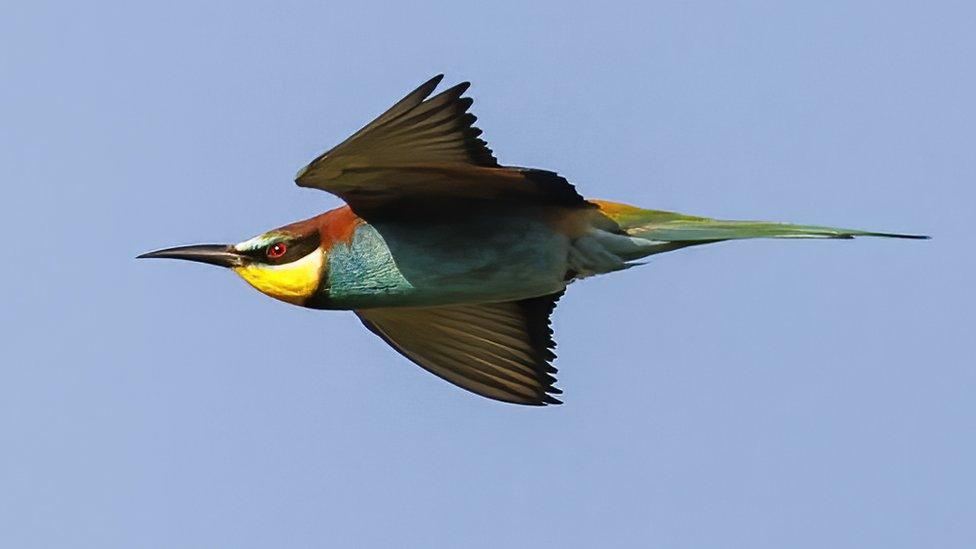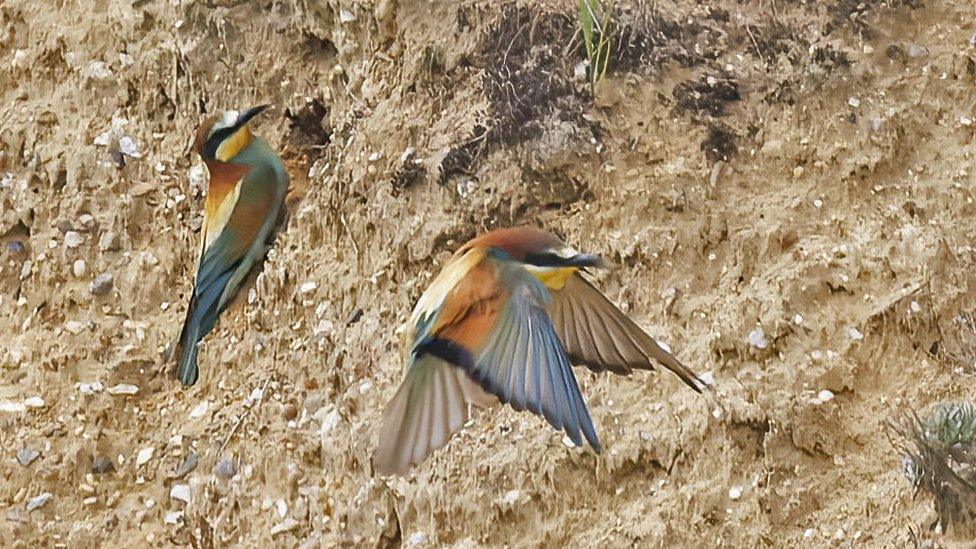Bee-eater chicks in Norfolk quarry 'indicate climate change'
- Published

Rare bee-eater chicks have hatched in a quarry close to Trimingham, near Cromer
Rare bee-eater chicks which have hatched in a UK quarry are a "vivid reminder" of climate change, conservationists said.
Eight bee-eaters arrived in the quarry, near Trimingham in Norfolk, in early June.
They normally nest in southern Europe and northern Africa, but there has been an increase in nesting further north in the past 20 years, the RSPB said.
It added this showed "the changes being wrought by our overheating planet".
Bee-eaters raise their chicks communally and the RSPB said there were two breeding pairs at the site while the other birds, which are probably related, help them with duties such as excavating burrows, feeding and incubating.
People monitoring the site have spotted an increase in the activity of bringing food to one of the two nest burrows, which they said indicated that chicks were being fed.


Bee-eaters, pictured at their burrows at the quarry, raise their chicks communally
Bee-eaters
Bee-eaters are about the size of a starling and have claret-red backs, yellow throats and turquoise bellies
They feed on various species of bees, dragonflies and other flying insects that they catch in mid-air
There have been six recorded breeding attempts by bee-eaters in the UK in the past 20 years, with the last successful bid on the Isle of Wight in 2014
The first bee-eater chicks to hatch in the UK since 1955 were in Bishop Middleham in County Durham in 2002
In 1955, two pairs nested in a sand-pit in Sussex and raised seven young. Before that, the only other known nesting attempt was in Scotland in 1920
Most recently, seven birds nested in Nottinghamshire in 2017, but the nests failed due to bad weather
Source: RSPB

The evidence emerged as the UK sweltered in a record-breaking heatwave, and the RSPB said the expansion of the birds' northern range was a warning that "hotter, drier summers and searing temperatures will become the norm if urgent action isn't taken to curb greenhouse gas emissions".
Director of conservation, Katie-jo Luxton, said many species were moving north as the planet warmed.
"While it's good news that that these chicks have hatched, this remains a very vivid reminder of the changes being wrought by our overheating planet," she said.
"Like canaries down a coal mine, bee-eaters nesting in the UK are an early warning of what climate change has in store."
The birds were expected to remain at the quarry until the end of summer, before flying to southern Africa for the winter as a group.

Find BBC News: East of England on Facebook, external, Instagram, external and Twitter, external. If you have a story suggestion email eastofenglandnews@bbc.co.uk, external